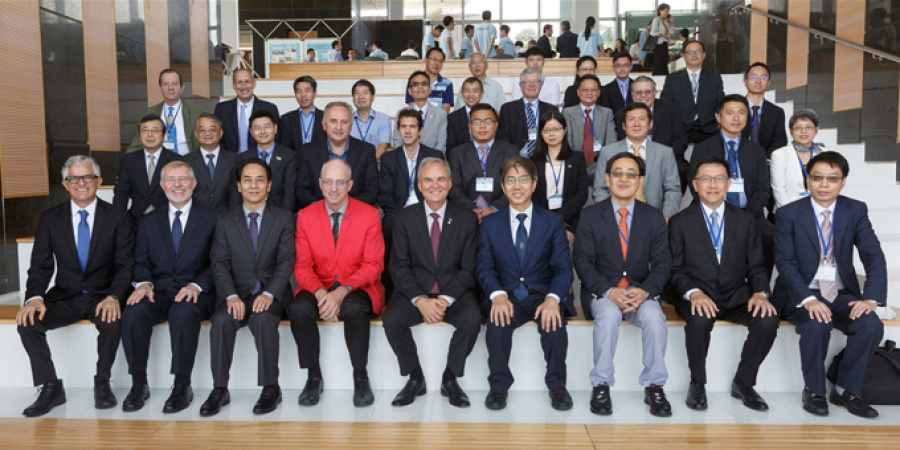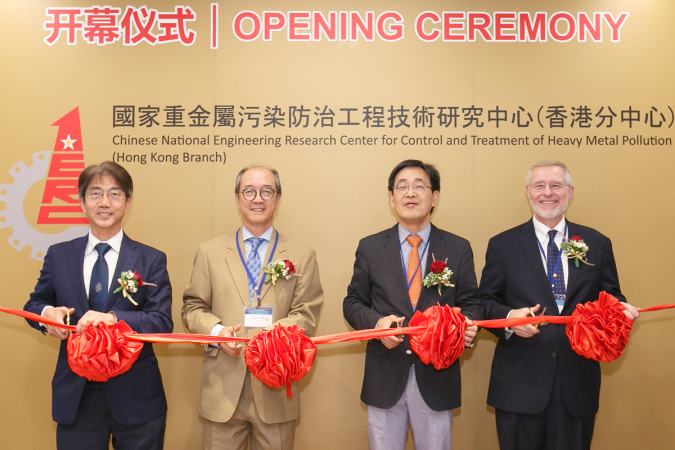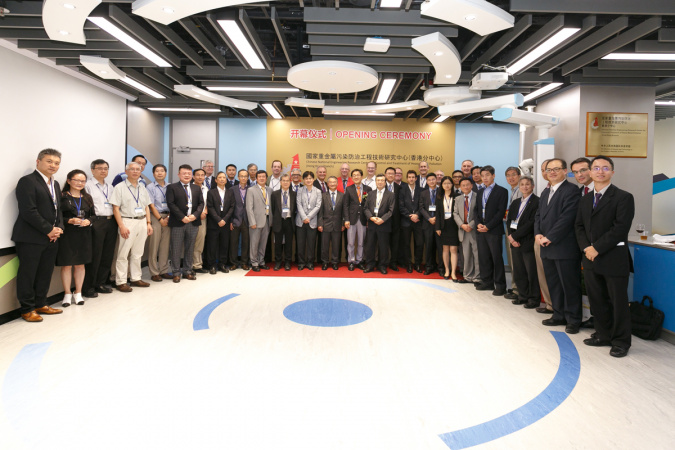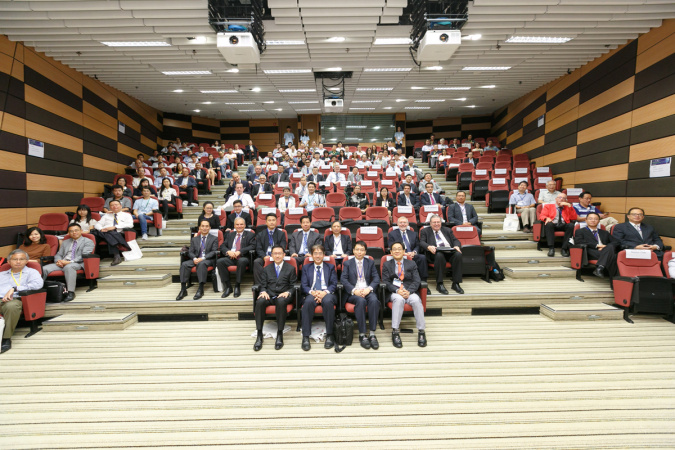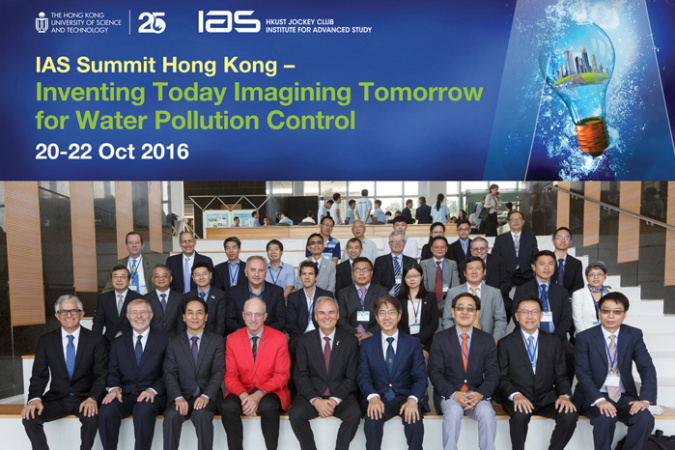Global Experts in Water Quality Converge at HKUST to Share Information and Insights
Sixteen world-renowned experts in water pollution control from overseas, Mainland China and Hong Kong assembled at HKUST from October 20 to 22, 2016 to share experiences of today and to crystal-gaze future possibilities for improvement.
This momentous event, entitled “IAS Summit Hong Kong – Inventing Today Imagining Tomorrow for Water Pollution Control”, was co-organized by the HKUST Jockey Club Institute for Advanced Study (IAS) and the newly established Hong Kong Branch of the Chinese National Engineering Research Center for Heavy Metal Pollution Control and Treatment. It was one of the key events to celebrate the HKUST’s 25th Anniversary.
The range of collaborating institutions testifies to the tremendous significance of this Summit, including the International Water Association, three Hong Kong government departments (namely the Environment Protection Department, the Water Supplies Department, and the Drainage Services Department), three publicly funded universities (namely the University of Hong Kong, the Hong Kong Polytechnic University, and the Hong Kong Baptist University), and two public institutions (namely the Hong Kong Branch of the Chartered Institution of Water and Environmental Management, and the Environmental Division of the Hong Kong Institution of Engineers).
Professor Guang-Hao Chen, Chair Professor of the Department of Civil and Environmental Engineering and Chair of the Organizing Committee of IAS Summit Hong Kong, said, “With the growing concerns over climate change, increasing global population, rapid industrialization and urbanization in emerging countries and particularly in China, effective water pollution control is crucial for water safety and security, water environment protection, and urban water management. To this end, continuous research and development, technology implementation and regulatory enforcement are necessary.”
The Summit focused on several key areas – technology innovations, new system developments for water pollution control, urban water management, wastewater treatment, and exploiting alternative water resources.
In addition to the Opening Session, the Summit Program comprised six sessions – five on global experiences and one on local experiences.
On top of speakers from mainland China and Hong Kong, there were many overseas speakers – from the USA, the Netherlands, Norway, France, Japan and Australia – covering four continents.
In parallel to the Summit Program, the University-Industry Collaboration Forum was specially held on the final day comprising two parts –Part One featured speakers from three supporting government departments and the two supporting institutions and Part Two featured a wide range of leading water organizations/companies in Mainland and overseas– namely North China Municipal Engineering Design & Research Institute, China Everbright Water Ltd, Weiming Group Co Ltd, Wuhan Kinghome Environmental Technology Co Ltd, Xylem Ltd, and SUEZ (Asia) Ltd.
"The Summit on Water Pollution Control provided an exceptional opportunity for water professionals, academics, students, regulators and policy-makers to come together and discuss the future of water science and technology", said Prof Guang-Hao Chen.

